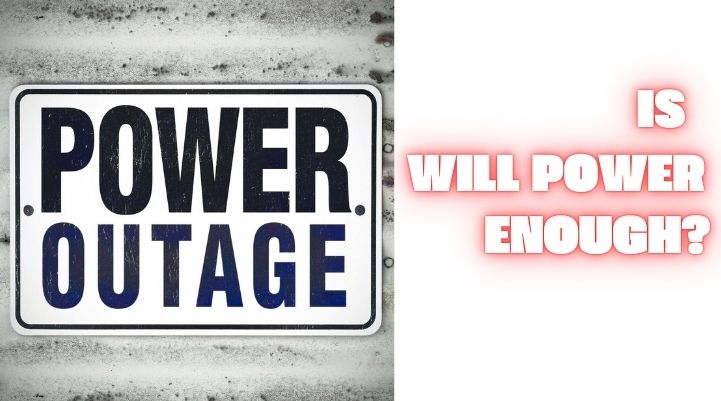
Why Willpower Alone Should Not Be Your Self-Growth Strategy.

Why The Infinite Learning?
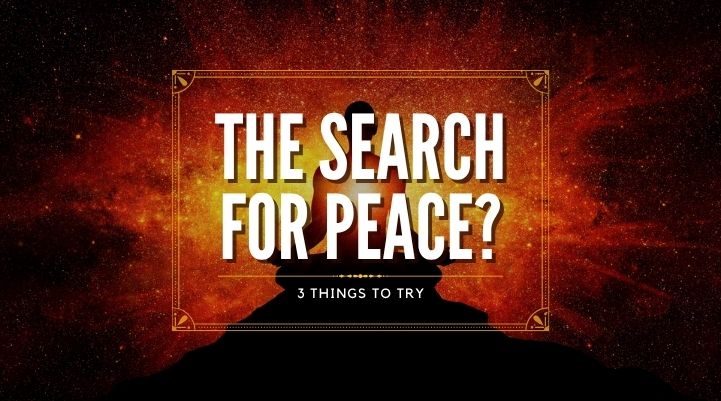
Looking for peace of mind? Try these 3 things first.
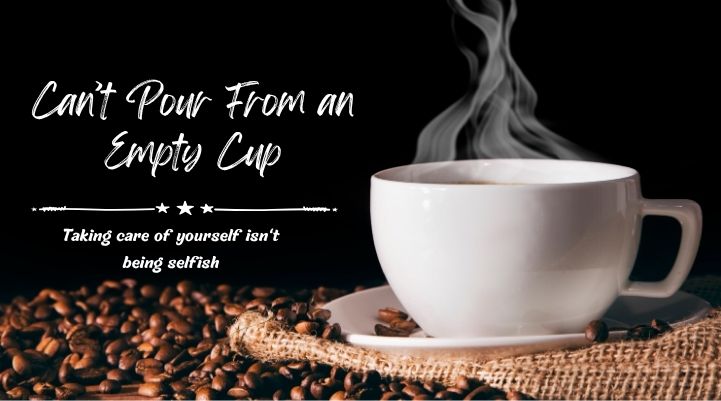
Taking care of yourself isn't being selfish; it's essential for long-term success.
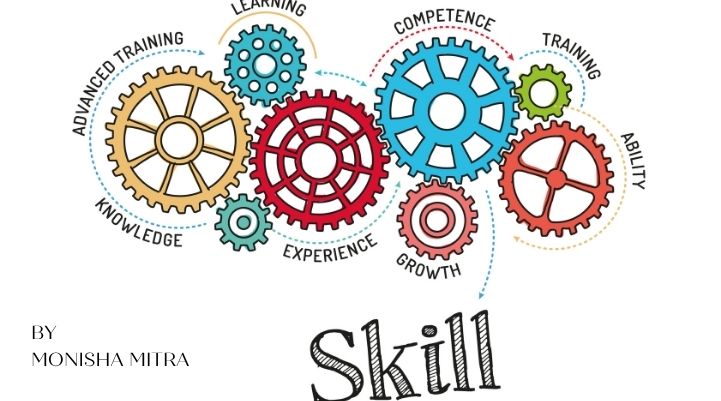
Trends in Life Skills Training: Getting Ready for What's Next
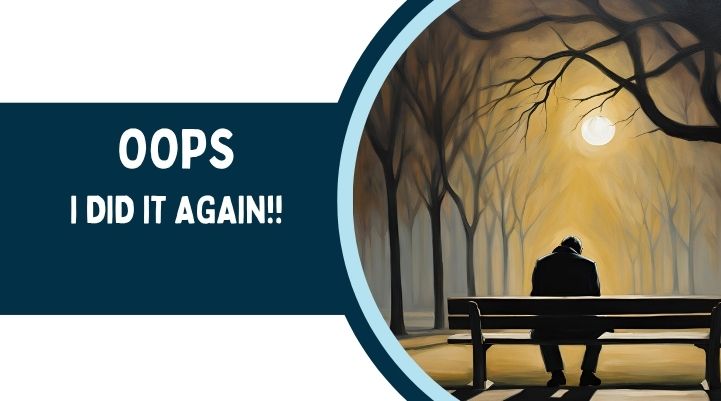
Coming soon
“We now accept the fact that learning is a lifelong process of keeping abreast of change. And the most pressing task is to teach people how to learn.” — Peter Drucker
“Develop a passion for learning. If you do, you will never cease to grow.” — Anthony J. D’Angelo
“Wisdom is not a product of schooling but of the lifelong attempt to acquire it.” — Albert Einstein
"I'm so stressed," "I'm losing my sh*t," and "I can't cope." When was the last time you uttered these words? We have either uttered or mentioned most of these statements at some point in our lives.
Even when you go to the doctor for a chronic ailment, the first question is always, "Are you under pressure or is there any stress?"
So people will say that work is stressful, but what should they do?
My child is in the board class. I'm so stressed, but what should I do?
My parents' illness is putting a lot of pressure on me, but what should I do?
Of course, work always brings stress and pressure. Unless you change your line of work, there is always pressure of a different kind.
You can't change your child's grade; new parents will most likely face age-related health issues.
So, what can you do about these stresses that are eating you up and potentially making you unwell without you even realizing it?
Here are three key areas to comprehend and improve upon for a better understanding and management of your emotions. Therefore, it also helps you manage your stress.
1. Understand Control
You would like to believe you have everything under control, but you really don't. You can force your child to study at a table, but you can't control what they learn. You don't control your clients, your teams, your bosses, or even the people who report to you. You can penalize someone for coming late, but you cannot ensure they arrive on time. Just as your parents cannot compel you to enjoy vegetables such as pumpkin, bitter gourd, or aubergine (also known as kaddu, tinda, baingan, tomato, or karela), they exercised control and forced you to eat them, but they couldn't force you to like them.
What level of control do you have, or does anyone else have? When you acknowledge and embrace this as a fact, it clarifies the situation and significantly lessens the stress you subject yourself to. In all honesty, you are putting yourself under unnecessary stress.
2. Declutter your mind.
People generally have a tendency to overthink. People I have trained have identified this as a common recurring pattern in their lives: the inclination to mentally replay events, conversations, potential outcomes, potential commands, and hypothetical commercials.
It's all happening in the mind. It's not real. Our thoughts and thought processes trigger our actions, and then we encounter another problem. We don't just focus on one problem; we tend to focus on multiple issues together.
Take this situation, for example. You arrive late for work, have to drop your child off at school, need to travel a considerable distance, have a scheduled meeting in the first half of the day, need to submit an estimate to the client, and have internal follow-up tasks to complete, all within the confines of the 7:30 a.m. to 1:00 p.m. time frame.
Did you see the scenario? Do you understand how your brain will overdrive and transport you?
For 30 seconds, close your eyes and imagine the scenarios above. Do you see the chaos around you? How will you react?
What do you do?
How do you deal with this? How do you stop yourself from losing it completely?
The solution is simple. Consider solving one problem instead of emptying the entire sack of tasks on the table. If you're late, can you start work by messaging people to prioritize and respond? Unless you have a chopper, you will have to go through the traffic, drop your child off at school, and run headwork. Therefore, there's no need to incite panic, confusion, or chaos. Be mindful of your sanity and safety. It will take as long as it takes. Accept that as a reality.
Can you tell people you report to that you face problems and justice for a day if you're late because you didn't plan to be late?
Can you initiate follow-up estimates for the EC remotely?
Finding a solution to your current situation aligns with mindfulness and awareness of its influence on your mental state. When you take stock, you begin to change the way you function and operate. The more you change the way you respond to situations,
3. Maybe you should have been number one. TO BREATHE
When we experience stress, we function from a place of fear. This causes breathing to become shallow, which causes the body to think it's in stress distress, making all your organs focus on a space of worry, concern, and all emotions that are not helpful. When you breathe normally—full inhale and full exhale—what's going on? You keep your body neutral; there's no shortage of oxygen for the brain, not for the vital organs. The best part is that the air is free. It's natural to breathe to stay alive and bleed to sustain, but we don't realize this and breathe as if afraid, angry, or panicked. In a strange place in your mind, focus on your breathing. Is it laboured, shallow, normal huffing, or puffing?
It's pointless to look outward for peace of mind when you and your body have all the necessary tools to keep you safe and sustained in a way that has long-term benefits.
“Anyone who stops learning is old, whether at twenty or eighty. Anyone who keeps learning stays young. The greatest thing in life is to keep your mind young.” — Henry Ford
The saying "You can't pour from an empty cup" really sums up what self-care is all about." In today’s busy world, where the push to do well is constant, it’s super easy to overlook our own well-being. But, you can't really hit that true and lasting success without putting self-care first.
People often think of self-care as being selfish or just a treat for yourself. We've been taught to think that prioritising ourselves means we're weak or not committed enough. But the truth is totally different. If we ignore our physical, mental, and emotional health, we run low on energy and struggle to perform at our best.
Picture yourself as a cup. If you're always giving and putting out your energy and resources without taking the time to refill, your cup is gonna run dry eventually. When you're running on empty, you just can't give it your all, and it shows in how you perform. You end up being less productive, less creative, and not as tough when challenges come your way.
But hey, when you focus on self-care, you're just topping off your own cup. You're taking care of yourself, making sure you've got the energy, focus, and strength to handle whatever life throws at you.
Self-care isn’t something that works for everyone in the same way. What works for one person might not be the best fit for someone else. It's all about discovering things you enjoy that feed your mind, body, and soul. This could be stuff like:
Taking care of yourself physically means catching enough Z's, munching on good food, moving your body with some exercise, and making sure to take breaks during the day.
Mental self-care: Just chilling with some mindfulness or meditation, diving into a good book, picking up new skills, and knowing when to say no.
Taking care of your emotions: Hanging out with friends and family, writing in a journal, talking to a therapist, and sharing how you feel.
Making self-care a priority really boosts all parts of your life in a good way. You'll feel more energised, focused, and motivated. You'll be more ready to deal with stress and bumps in the road. You'll get more creative and get stuff done. You'll feel way happier and more fulfilled.
Finding success doesn't mean you have to wear yourself out chasing your dreams. It's all about striking a chill balance between working hard and kicking back, between putting in and taking it easy. Taking care of yourself sets you up for success down the road.
Hey, just a reminder that taking care of yourself isn't just a nice-to-have; it's something you really need to do. It's a way to take care of yourself now and later. Hey, why not kick off some self-care today? You'll see your energy, joy, and success just start to flow!
Taking care of yourself isn't being selfish; it's just looking out for your own well-being. It's all about knowing your value and doing what you need to take care of your mind, body, and soul. When you fill up your cup, you’ve got more to share with others and the world around you. Just ditch the guilt and make self-care a key part of your path to lasting success.
Hey, just a reminder that you can't give what you don't have. Look after yourself first, and everything else will fall into place.
“Change is the end result of all true learning.” — Leo Buscaglia
With all the tech changes and shifts happening around us, it's super clear that life skills training is more important than ever. Traditional education systems are important, but they often miss the mark when it comes to helping people develop the soft skills needed to handle the challenges of today’s world. There's been a noticeable uptick in the need for life skills training programs, which are constantly changing to tackle the unique challenges of the 21st century.
Cool Trends in Life Skills Training
Focus on Emotional Smarts and Mental Health:
These days, just being good at the tech stuff isn't enough for the workplace. Emotional intelligence (EQ) includes things like self-awareness, empathy, and managing relationships, and it's becoming a big deal when it comes to success. Life skills training programs are focussing more on building emotional intelligence, encouraging self-regulation techniques, and supporting mental well-being to boost overall resilience and adaptability.
Pay Attention to Digital Skills and Smart Thinking: In today's digital world, being able to move around online safely, judge information wisely, and use tech effectively is super important. Life skills training is adding stuff on digital literacy, critical thinking, and media literacy to help people make smart choices and steer clear of misinformation traps.
Personalised and Experiential Learning: Since everyone learns differently, life skills training programs are shifting to more tailored and hands-on methods. This involves using tech to create personalised learning experiences, adding in simulations and real-life scenarios, and encouraging peer-to-peer learning to boost engagement and retention.
Staying Flexible and Always Learning: With things changing so fast, being able to adapt and keep learning is super important. Life skills training programs are all about building a growth mindset. They help people get comfortable with change, learn from their mistakes, and actively look for new knowledge and skills as they go through life.
Working together and being part of the global community: With the world getting more connected, it's super important to team up across different cultures and play a role in our global society. Life skills training programs are focussing on cross-cultural communication, teamwork, and social responsibility to get people ready for the challenges and opportunities in our globalised world.
Life Skills Training: What's Next?
Life skills training is always changing and adapting to what people and society need. As we keep going, we can look forward to more tech, like AI and virtual reality, making learning even better. Also, there’s going to be more attention on tackling new challenges like climate change and the ethics of tech, all while keeping life skills training in mind.
Life skills training is super important for helping people succeed in today's world. By keeping up with new trends and adjusting to what learners need, these programs can help people gain the skills, knowledge, and mindset they need to handle a complex and connected world. Putting money into life skills training is a smart move for the future. It helps people grow, bounce back from challenges, and make a real difference in the world.